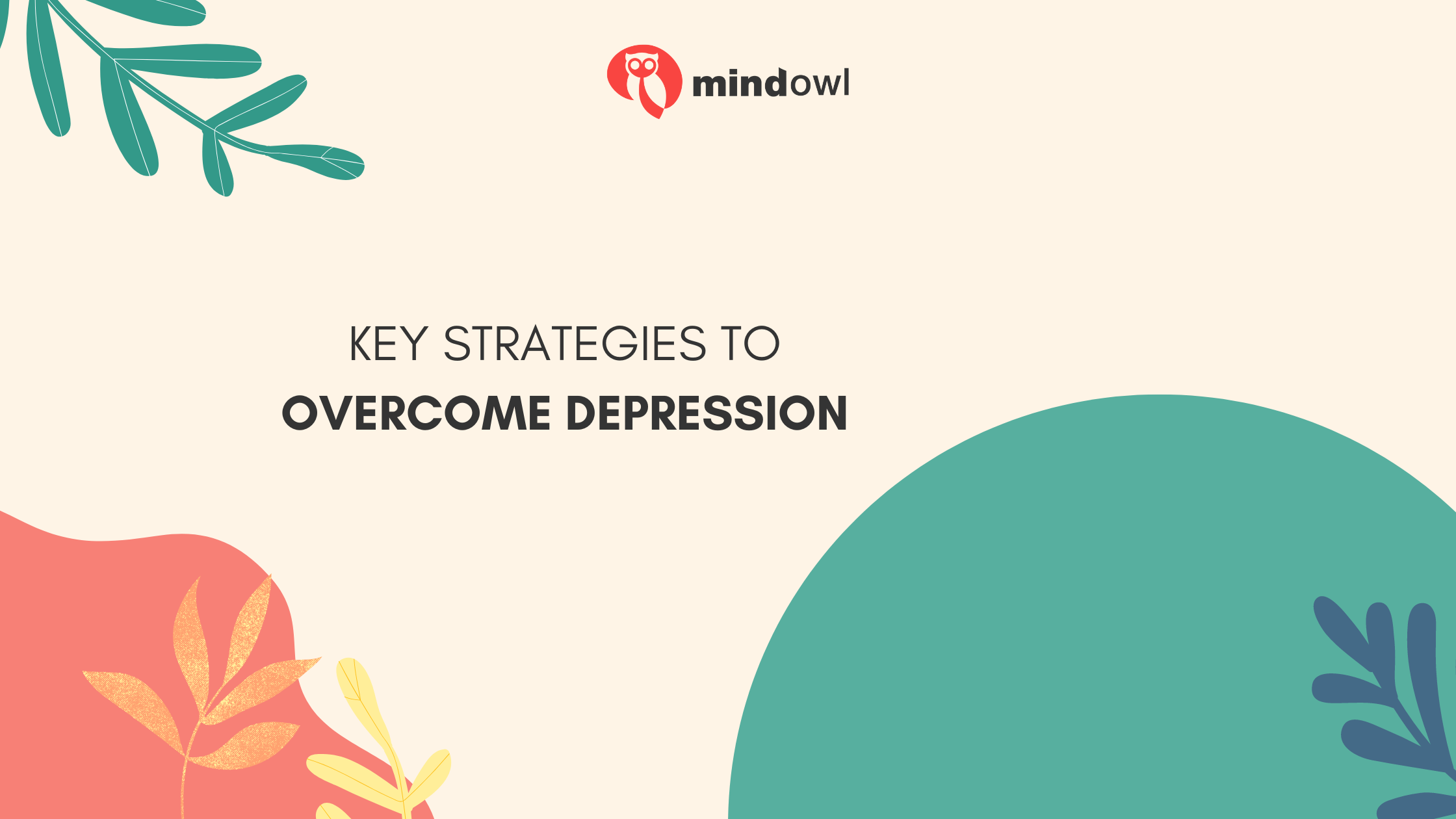Depression is a severe mental health disorder that affects millions of people worldwide. It can cause significant distress and impair daily functioning, decreasing quality of life. While it is normal for everyone to experience low moods from time to time, depression is characterized by persistent feelings of sadness, hopelessness, and lack of interest in activities. Fortunately, depression is a treatable condition with various effective strategies available. In this guide, we will discuss key strategies that can help individuals overcome depression and improve their overall well-being.

Seek Professional Help
Reaching out for professional help is a vital step in overcoming depression. Mental health professionals, such as psychologists, psychiatrists, and licensed therapists, offer valuable support and guidance tailored to individual needs. They can provide a comprehensive assessment and develop a personalized treatment plan that may include psychotherapy, medication, or a combination. One innovative approach gaining recognition is Transcranial Magnetic Stimulation Therapy, a non-invasive therapy that is safe and effective for those who have treatment-resistant depression. Seeking professional help is crucial to recovery and should not be overlooked.
Practice Mindfulness Techniques
Mindfulness techniques help manage and overcome depression by encouraging present-moment awareness and reducing negative thinking. By focusing on the now, individuals can cultivate peace and acceptance, decreasing rumination that worsens depression. Practices like meditation, deep breathing, and yoga promote observing thoughts and feelings without judgment, fostering a healthier relationship with emotions.
Research shows regular mindfulness practice can reduce stress, improve mood, and enhance well-being. Incorporating mindfulness into daily life can be as simple as taking a few moments each day to breathe deeply and notice your surroundings, fostering a more grounded and positive mindset. This change in perspective can empower individuals to handle life’s challenges with resilience instead of despair.
Engage in Regular Physical Activity
Physical activity is a powerful tool in the fight against depression. Exercise has been shown to release endorphins, the body’s natural “feel-good” chemicals, which can elevate mood and reduce symptoms of depression. Additionally, regular physical activity can improve self-esteem and confidence while providing a sense of accomplishment.

The type of exercise does not need to be intense; activities such as walking, jogging, yoga, or even gardening can provide numerous mental health benefits. It is also important to note that consistency is key; finding an enjoyable form of physical activity and incorporating it into daily routines can significantly contribute to overcoming depression.
Cultivate Supportive Relationships
Building and maintaining supportive relationships is crucial for those dealing with depression. Social connections offer emotional support, understanding, and encouragement during tough times. Friends, family, and support groups provide a listening ear and a safe space to share experiences without judgment. Engaging with others fosters belonging and helps combat the isolation often linked to depression.
Surrounding yourself with positive influences—people who uplift and motivate—can be beneficial. Engaging in social activities or community events helps strengthen these bonds and create new friendships, enhancing your support network. Building these relationships may require vulnerability, but the rewards of shared experiences and mutual understanding can aid in healing, making the struggle against depression feel less daunting.
Practice Self-Care and Healthy Habits
Self-care is fundamental in managing and overcoming depression. It involves prioritizing physical, emotional, and mental well-being by engaging in activities promoting relaxation, self-nurturing, and stress management. Some examples of self-care practices include getting enough sleep, eating a balanced diet, spending time outdoors, reading a book or watching a movie, and setting boundaries to avoid burnout.
In addition to incorporating self-care practices into daily routines, maintaining healthy habits can also contribute significantly to managing depression. This includes avoiding excessive alcohol and drug use as they can worsen symptoms of depression. Adopting healthier coping mechanisms such as journaling, painting, or engaging in hobbies can also provide a sense of accomplishment and self-expression, promoting positivity and empowerment.
Have Patience and Practice Self-Compassion
Overcoming depression is not an easy or linear process. It takes time, effort, and patience. It is crucial to recognize this and practice self-compassion along the way. Individuals should acknowledge their progress, no matter how small it may seem, and celebrate their efforts. It is also important to practice self-forgiveness and avoid harsh self-criticism if setbacks occur.
It is essential to remember that everyone’s journey with depression is unique, and recovery looks different for each individual. Some days may be more challenging than others, but with continued effort and support, it is possible to overcome depression and live a fulfilling life. Patience and compassion can greatly aid in this process, promoting resilience and self-acceptance.
Navigating through the challenges posed by depression requires a multi-faceted approach that prioritizes understanding and compassion for oneself. The journey to recovery is often marked by both strides forward and moments of difficulty, highlighting the importance of perseverance and self-kindness. Engaging with supportive communities, embracing hope, and fostering a positive mindset can be vital in this journey. Ultimately, with the right strategies and support, winning the battle against depression is possible, and individuals can achieve a more meaningful and fulfilling life.
MindOwl Founder – My own struggles in life have led me to this path of understanding the human condition. I graduated with a bachelor’s degree in philosophy before completing a master’s degree in psychology at Regent’s University London. I then completed a postgraduate diploma in philosophical counselling before being trained in ACT (Acceptance and commitment therapy).
I’ve spent the last eight years studying the encounter of meditative practices with modern psychology.

